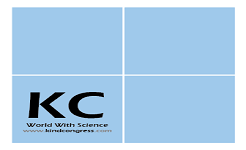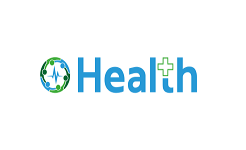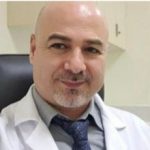Event Date
September 24-25, 2025
Venue
Valencia, Spain
– Previous Conference Performers / Professionals From Around The Globe –
Media Partners/Collaborator
A huge thanks to all our amazing partners. We couldn’t have a conference without you!










Sponsors/Exhibitors
A huge thanks to all our amazing partners. We couldn’t have a conference without you!


Organizer: World Pediatric Conference Alliance (WPCA)
Pediatric Conferences 2025
WPCA organizing the 32nd Edition of the International Conference on Pediatric and Neonatology is set to take place on September 24-25, 2025 in the beautiful city of Valencia, Spain. This prestigious conference brings together leading experts, healthcare professionals, researchers, and practitioners in the fields of pediatrics and neonatology. It offers a unique platform for sharing the latest advancements, research findings, and clinical practices aimed at improving the care and treatment of children and newborns.
World Pediatric Conference Alliance (WPCA)
Purpose: To host and coordinate the largest rotating pediatric congresses across continents, bringing together pediatricians, researchers, and health policymakers.
Flagship Event: Pediatric conference 2025
Special Features:
- Annual host country rotation
- Young Investigator Spotlight
- Pediatric Start-Up Showcase
Key Features of the Conference
-
Comprehensive Sessions: The conference will feature a series of plenary sessions, workshops, and panel discussions covering a wide range of topics, including neonatal care, pediatric diseases, immunology, genetics, pediatric surgery, child nutrition, and pediatric neurology.
-
Global Networking Opportunities: Attendees will have the opportunity to network with peers, industry professionals, and renowned experts from around the world. This is an excellent opportunity for collaboration, knowledge exchange, and establishing new professional connections.
-
Cutting-edge Research: The conference will highlight groundbreaking research in pediatric and neonatal medicine, including innovations in neonatal intensive care, pediatric infectious diseases, and advancements in pediatric healthcare technologies.
-
Interactive Workshops: Interactive workshops will focus on practical, hands-on experiences that provide participants with valuable skills and insights in clinical settings. Topics may include neonatal resuscitation, pediatric emergency care, and managing complex pediatric cases.
-
Educational Value: The event will cater to a wide range of attendees, from medical students to seasoned healthcare providers, ensuring that all participants gain new insights and learn from the shared knowledge and experiences of experts in the field.
Why Attend?
Attending this conference provides an unparalleled opportunity to:
- Network with Experts: Engage with thought leaders in pediatric and neonatology.
- Stay Updated: Gain insights into the latest research, technologies, and best practices in the field.
- Collaborate: Explore opportunities for collaboration and partnership with peers and industry leaders.
- Continuing Education: Earn continuing medical education (CME) credits and enhance your professional development.
- Global Perspective: Understand pediatric health challenges from a global perspective and explore innovative solutions.
Highlights of the Conference
- Keynote Speakers: Renowned speakers from around the world will share their insights on emerging trends in pediatric care.
- Interactive Workshops: Hands-on workshops designed to enhance clinical skills and knowledge.
- Poster Presentations: An opportunity for researchers to showcase their work and receive feedback from peers.
- Networking Events: Structured networking sessions to facilitate connections among attendees.
- Exhibition Area: A showcase of the latest technologies, products, and services in pediatric care.
Conference Sessions and Tracks
The conference will feature 15 diverse sessions and tracks, each focusing on different aspects of pediatric and neonatal care:
Track 1: Advances in Neonatal Care
Description: This track will explore the latest advancements in neonatal care, including technologies for monitoring, respiratory support, and nutrition. Experts will discuss evidence-based practices for improving outcomes in preterm and critically ill newborns.
Track 2: Pediatric Cardiology Innovations
Description: Focused on pediatric cardiology, this track will highlight recent innovations in diagnosis and treatment of congenital heart diseases. Topics will include minimally invasive surgical techniques and advances in imaging.
Track 3: Infectious Diseases in Pediatrics
Description: This session will address the growing concerns of infectious diseases in children, including emerging pathogens and vaccine developments. Attendees will learn about preventive strategies and management approaches.
Track 4: Mental Health in Pediatrics
Description: The mental health of children is a pressing issue. This track will explore screening, diagnosis, and treatment of common mental health disorders in pediatric populations, emphasizing the importance of early intervention.
Track 5: Pediatric Nutrition and Growth
Description: This session will cover nutritional requirements at different stages of childhood and the impact of nutrition on growth and development. Special focus will be given to addressing obesity and malnutrition.
Track 6: Pediatric Surgery Updates
Description: An overview of the latest advancements in pediatric surgical techniques and technologies. This track will discuss minimally invasive approaches and improvements in perioperative care.
Track 7: Child Development and Behaviour
Description: Explore the latest research on child development and behavioral issues. This track will cover developmental milestones, early intervention strategies, and behavioral therapies.
Track 8: Pediatric Emergency Medicine
Description: This session will focus on best practices in pediatric emergency medicine, including management of acute conditions and trauma. Case studies will be discussed to illustrate critical decision-making.
Track 9: Pediatric Pharmacology
Description: A deep dive into pediatric pharmacology, this track will address the unique aspects of drug therapy in children, including dosing, side effects, and new drug approvals.
Track 10: Ethical Issues in Pediatric Care
Description: Ethical dilemmas frequently arise in pediatric practice. This session will engage participants in discussions about consent, treatment refusal, and end-of-life decisions.
Track 11: Pediatric Rehabilitation
Description: Focused on the rehabilitation needs of children with disabilities, this track will cover therapies aimed at improving physical and cognitive functioning, as well as family support systems.
Track 12: Telehealth in Pediatrics
Description: As telehealth becomes increasingly important, this session will explore its applications in pediatric care, including remote consultations, monitoring, and challenges faced by practitioners.
Track 13: Global Health Challenges in Pediatrics
Description: This track will examine global pediatric health challenges, including access to care, disease burden, and innovative solutions being implemented in various regions.
Track 14: Pediatric Research Methodologies
Description: Aimed at researchers, this session will cover methodologies specific to pediatric research, including ethical considerations and funding opportunities.
Track 15: Innovations in Pediatric Technology
Description: Explore the latest technological innovations in pediatric healthcare, from wearables to artificial intelligence, and their potential impacts on patient care and outcomes.
Market Analysis
Current Trends in Pediatric and Neonatology
The pediatric and neonatology market is experiencing significant growth, driven by an increase in awareness about child health issues, advancements in medical technology, and a rise in the prevalence of pediatric diseases. The global market for pediatric healthcare is expected to reach USD X billion by 2025, with a compound annual growth rate (CAGR) of Y%.
Key Drivers of Growth
- Increased Prevalence of Pediatric Diseases: The rise in chronic diseases among children, such as asthma, obesity, and diabetes, necessitates enhanced healthcare services and resources.
- Advancements in Medical Technology: Innovations in medical devices, telehealth, and diagnostic tools are improving the quality of care and increasing access to pediatric services.
- Rising Awareness of Child Health Issues: Public health campaigns and increased media coverage are raising awareness about the importance of pediatric health, leading to higher demand for specialized care.
- Government Initiatives: Policies aimed at improving child healthcare access and outcomes are supporting market growth. Initiatives to increase vaccination coverage and maternal health also play a crucial role.
Challenges Facing the Market
Despite the positive outlook, the pediatric and neonatology market faces several challenges:
- Resource Allocation: In many regions, there is an unequal distribution of healthcare resources, leading to disparities in care.
- Complexity of Pediatric Care: The unique physiological differences in children compared to adults necessitate specialized training and care protocols, which can be resource-intensive.
- Economic Constraints: In lower-income regions, economic challenges may hinder access to quality pediatric care, impacting overall health outcomes.
About Venue
The 32nd Edition of the International Conference on Pediatric and Neonatology will be held in Valencia, Spain, a city known for its rich cultural heritage, stunning architecture, and vibrant atmosphere. The exact venue details will be announced closer to the event date, but typically, such prestigious conferences are hosted in state-of-the-art conference centers or hotels with modern facilities designed to cater to international delegates.
-
Palacio de Congresos de Valencia (Valencia Conference Centre):
-
This is one of the most prominent and well-equipped conference venues in the city. It boasts spacious auditoriums, breakout rooms, and cutting-edge technology to facilitate an engaging and smooth conference experience. The venue is located in a prime area, easily accessible by public transport, and offers a variety of facilities such as exhibition spaces, catering, and networking areas.
-
-
Hotel Las Arenas Balneario Resort:
-
A luxurious five-star hotel by the beach, offering a beautiful and relaxing environment. The venue is known for hosting international conferences and events, combining luxury with world-class amenities. Its proximity to the beach allows attendees to enjoy both business and leisure during their stay.
-
-
Ciudad de las Artes y las Ciencias (City of Arts and Sciences):
-
Known for its stunning futuristic architecture, the City of Arts and Sciences is a cultural and architectural complex in Valencia. It includes large halls and auditoriums that can accommodate significant events and conferences. Its scenic beauty and proximity to cultural landmarks make it an exciting venue for international events.
-
-
Hotel SH Valencia Palace:
-
Located in the heart of Valencia, this hotel offers a perfect blend of comfort and modern facilities for conferences. With spacious meeting rooms and excellent customer service, it is a popular choice for business conferences and international events.
-
Why Valencia?
-
Accessibility: Valencia is well-connected with an international airport, train stations, and excellent public transport, making it easy for delegates to travel from all over the world.
-
Rich Cultural Heritage: The city offers a unique blend of modern attractions and historical sites. Attendees will have the chance to explore Valencia’s stunning architecture, beautiful parks, beaches, and delicious cuisine, making it a fantastic destination for both business and leisure.
-
Accommodation: There are various accommodation options in the city, ranging from luxury hotels to more affordable choices, making it convenient for attendees to stay close to the event venue.
– Tracks & Key Topics –
Tracks
Pediatric Anesthesia
Pediatric Research
Pediatric Neurology
Pediatric Genetics
Pediatric Nursing
Pediatric Cardiology
General Pediatrics
Pediatric Otolaryngology
Pediatric Dentistry
Pediatric Gastroenterology
Neonatology
Environmental Pediatrics
Pediatric Ophthalmology
Pediatric Urology
Pediatric Nutrition
Pediatric Psychology
Pediatric Surgery
Autism/ ADHD/ Anxiety
Pediatric Obesity
Pediatric Rheumatology
Congenital Heart Disease (CHD)
Pediatric Immunology
Child Nutrition And Development
Pediatric Brain Tumor
Pediatric Neonatal Diseases
Pediatric Allergy
Pediatric Rehabilitation Medicine
Pediatrics Vaccines
Pediatric Dermatology
Clinical Pediatrics
Childhood Trauma
Robot-Assisted Surgery
Academic Key Topics
World Pediatrics 2024
Pediatric Research
General Pediatrics
Child Nutrition and Development
Pediatric Dermatology
Multiple Sclerosis
Pediatric Allergy
Hydrocephalus
Child Psycology
Neonatal Tetanus
Nutritional Deficiencies
Degenerative Arthropathies
Pediatric Vaccines
Acute Coronary Syndromes
Clinical Cardiology
Robotic Heart Surgery
Breast Feeding
Neonatology and Perinatology
Breast Feeding
Multiple Sclerosis
Pediatric Brain Tumor
Congenital Malformation
Neuropathology of Pediatric Epilepsy
Autism/ ADHD/ Anxiety
Perinatology
Neonatalogy And Perinatology
Neonatal Diabetes Mellitus
Pediatric Rheumatology
Neonatal Meningitis
Neonatology
Pediatric Allergies
Pediatric Epilepsy
Infant Regurgitation
Pediatric Neuro-Oncology
Congenital Disorder
Blood Transfusion
Inborn Errors Of Metabolism
Acute Coronary Syndrome
Acute Heart Failure
Adolescent Medicine
Anemia
Aortic Aneurysm
Asthma Children
Atrial Fibrillation
Atrioventricular Block
Atrioventricular Node
Atrophic Remodeling
Bayley Scales
Birth Injury
Birth Trauma
Bradycardia
Bypass Surgery
Cardiac Angiography
Cardiac Arrest
Cardiac Arrhythmia
Cardiac Care
Cardiac Catheterization
Cardiac Cell Replacement
Cardiac Cycle
Cardiac Dysfunction
Cardiac Function Curves
Cardiac Hypertrophy
Cardiac Mapping
Cardiac Metabolism
Cardiac Myocytes
Cardiac Nursing
Cardiac Nursing Management
Cardiac Pacemakers
Cardiac Pathology
Cardiac Perfusion Scan
Cardiac Rehabilitation
Cardiac Stem Cells
Cardiac Surgeons
Cardiac Toxicity
Cardiothoracic Surgery
Cardiovascular Biomechanics
Cardiovascular Clinical Trials
Cardiovascular Collapse
Cardiovascular Diabetes
Cardiovascular Mortality
Cardiovascular Research
Cardiovascular Risk Factors
Care Plan
Child Abuse
Child Development
Childhood Cancer
Childhood Cirrhosis
Childhood Obesity
Children Health
Clinical Pediatrics
Congenital Heart Disease
Cyanotic Heart Disease
Diastolic Blood Pressure
Dilated Cardiomyopathy
Down Syndrome
Echocardiography
Ethics In Pediatric Nursing
Family Child Care
Fetuses, Hemostasis
Growth Implications
Haemolytic Disease Of Infants
Heart Failure
Heart Rate
Heart Sounds
Hemolytic Disorder Of Newborn
Infancy Diseases
Infants With Fetal (intrauterine) Growth Restriction
Ischemic Heart Disease
Myocarditis
Neonatal Health, Growth And Development Of Children
Newborn Screening
Open Heart Surgery
Parturition
Pediatric Anesthesia
Pediatric Ataxia
Pediatric Case Report
Pediatric Congestive Heart Failure
Pediatric Dentistry
Pediatric Dermatology
Pediatric Disorder
Pediatric Disorder
Pediatric Drug Handling
Pediatric Emergency
Pediatric Endocrinology
Pediatric Gastroenterology
Pediatric Hepatology
Pediatric Hospital Medicine
Pediatric Intensive Care
Pediatric Nephrology And Urology Nursing
Pediatric Neuroblastoma
Pediatric Neurology
Pediatric Nurse Practitioner
Pediatric Nursing
Pediatric Nutrition
Pediatric Nutrition And Breast Feeding
Pediatric Oncology
Pediatric Ophthalmology
Pediatric Ophthalmology
Pediatric Pain Management
Pediatric Pharmacology
Pediatric Precision Medicine
Pediatric Pulmonology
Pediatric Radiology
Pediatric Rehabilitation Medicine
Pediatric Surgery
Pediatric Surgery Nursing
Pediatric Trauma
Pneumonia Children
Postnatal Preventive Pediatrics
Premature Birth
Preschools & Centre Based Care
Psychosocial Health Of Children
Pulmonary Edema
Pulmonary Hypertension
Pulmonary Stenosis
Retinopathy Of Prematurity
Stroke Work
Sudden Infant Death Syndrome
Therapy Children
Transient Tachypnea Of The Newborn
Neonatal Disorders
Neonatal Encephalopathy
Neonatal Ethical Dilemma
Neonatal Eye’s Care
Neonatal Hemochromatosis
Neonatal Hepatitis
Neonatal Herpes
Neonatal Herpes Simplex
Neonatal Hyperbilirubinemia
Neonatal Hypoglycemia
Neonatal Infections
Neonatal Intensive Care
Neonatal Intensive Care Unit
Neonatal Intensive Care Unit
Neonatal Jaundice
Neonatal Jaundice
Neonatal Jaundice (hyperbilirubinemia)
Neonatal Lupus
Neonatal Lupus Erythematosus
Neonatal Medicine
Neonatal Meningitis
Neonatal Mortality
Neonatal Mortality
Neonatal Nursing
Neonatal Nutrition
Neonatal Outcomes
Neonatal Pain
Neonatal Pressure Ulcer
Neonatal Respiratory Distress
Neonatal Resuscitation
Neonatal Seizures
Neonatal Sepsis
Neonatal Stroke
Neonatal Tetanus
Neonatology
Nerofibromatosis & Migraine
Newborn Bathing
Newborn Care
Newborn Hearing Screening
Newborn Infant
Newborn Jaundice
Newborn Screening
Newborn Sepsis
Newborn Skin
Nourishing A Growing Child
Nutrients And Clinical Strategies
Obesity And Weight Management
Obesity Children
Optimizing Nutrition
Pain Management
Pain Newborn
Palliative Care
Palliative Care Services
Pancreatitis
Parasitic Infections
Parental Nutrition In Behavioural Health
Parental Nutrition In Chronic Diseases
Parental Nutrition In Eating Disorders
Parental Nutrition In Food Allergies
Parental Nutrition In Malnutrition
Parental Nutrition Nursing
Parental Nutrition Obesity
Parenteral And Enteral Nutrition
Parkinson’s Disease
Pediatric Anesthesia
Pediatric Asthma
Pediatric Ataxia
Pediatric Brain
Pediatric Cancer
Pediatric Cardiac
Pediatric Cardiac Surgery
Pediatric Cardiology
Pediatric Case Report
Pediatric Dentistry
Pediatric Diet
Pediatric Disorder
Pediatric Emergency
Pediatric Food Allergy
Pediatric Gastroenterologists
Pediatric Gastroenterology
Pediatric Heart
Pediatric Hepatology
Pediatric Intensive Care
Pediatric Liver
Pediatric Nutrition
Pediatric Nutrition Care Manual
Pediatric Nutrition Meeting
Pediatric Obesity
Pediatric Oncology
Pediatric Palliative
Pediatric Palliative Care
Pediatric Parental Nutrition
Pediatric Pulmonology
Pediatric Surgery
Pediatric Surgery.
Pediatric Trauma
Phototherapy Neonatal
Pneumonia Children
Premature Newborn
Preschools & Centre Based Care
Probiotics
Business Key Topics
World Pediatrics 2024
Pediatric Research
General Pediatrics
Child Nutrition and Development
Pediatric Dermatology
Multiple Sclerosis
Pediatric Allergy
Hydrocephalus
Child Psycology
Neonatal Tetanus
Nutritional Deficiencies
Degenerative Arthropathies
Pediatric Vaccines
Acute Coronary Syndromes
Clinical Cardiology
Robotic Heart Surgery
Breast Feeding
Neonatology and Perinatology
Breast Feeding
Multiple Sclerosis
Pediatric Brain Tumor
Congenital Malformation
Neuropathology of Pediatric Epilepsy
Autism/ ADHD/ Anxiety
Perinatology
Neonatalogy And Perinatology
Neonatal Diabetes Mellitus
Pediatric Rheumatology
Neonatal Meningitis
Neonatology
Pediatric Allergies
Pediatric Epilepsy
Infant Regurgitation
Pediatric Neuro-Oncology
Congenital Disorder
Blood Transfusion
Inborn Errors Of Metabolism
Acute Coronary Syndrome
Acute Heart Failure
Adolescent Medicine
Anemia
Aortic Aneurysm
Asthma Children
Atrial Fibrillation
Atrioventricular Block
Atrioventricular Node
Atrophic Remodeling
Bayley Scales
Birth Injury
Birth Trauma
Bradycardia
Bypass Surgery
Cardiac Angiography
Cardiac Arrest
Cardiac Arrhythmia
Cardiac Care
Cardiac Catheterization
Cardiac Cell Replacement
Cardiac Cycle
Cardiac Dysfunction
Cardiac Function Curves
Cardiac Hypertrophy
Cardiac Mapping
Cardiac Metabolism
Cardiac Myocytes
Cardiac Nursing
Cardiac Nursing Management
Cardiac Pacemakers
Cardiac Pathology
Cardiac Perfusion Scan
Cardiac Rehabilitation
Cardiac Stem Cells
Cardiac Surgeons
Cardiac Toxicity
Cardiothoracic Surgery
Cardiovascular Biomechanics
Cardiovascular Clinical Trials
Cardiovascular Collapse
Cardiovascular Diabetes
Cardiovascular Mortality
Cardiovascular Research
Cardiovascular Risk Factors
Care Plan
Child Abuse
Child Development
Childhood Cancer
Childhood Cirrhosis
Childhood Obesity
Children Health
Clinical Pediatrics
Congenital Heart Disease
Cyanotic Heart Disease
Diastolic Blood Pressure
Dilated Cardiomyopathy
Down Syndrome
Echocardiography
Ethics In Pediatric Nursing
Family Child Care
Fetuses, Hemostasis
Growth Implications
Haemolytic Disease Of Infants
Heart Failure
Heart Rate
Heart Sounds
Hemolytic Disorder Of Newborn
Infancy Diseases
Infants With Fetal (intrauterine) Growth Restriction
Ischemic Heart Disease
Myocarditis
Neonatal Health, Growth And Development Of Children
Newborn Screening
Open Heart Surgery
Parturition
Pediatric Anesthesia
Pediatric Ataxia
Pediatric Case Report
Pediatric Congestive Heart Failure
Pediatric Dentistry
Pediatric Dermatology
Pediatric Disorder
Pediatric Disorder
Pediatric Drug Handling
Pediatric Emergency
Pediatric Endocrinology
Pediatric Gastroenterology
Pediatric Hepatology
Pediatric Hospital Medicine
Pediatric Intensive Care
Pediatric Nephrology And Urology Nursing
Pediatric Neuroblastoma
Pediatric Neurology
Pediatric Nurse Practitioner
Pediatric Nursing
Pediatric Nutrition
Pediatric Nutrition And Breast Feeding
Pediatric Oncology
Pediatric Ophthalmology
Pediatric Ophthalmology
Pediatric Pain Management
Pediatric Pharmacology
Pediatric Precision Medicine
Pediatric Pulmonology
Pediatric Radiology
Pediatric Rehabilitation Medicine
Pediatric Surgery
Pediatric Surgery Nursing
Pediatric Trauma
Pneumonia Children
Postnatal Preventive Pediatrics
Premature Birth
Preschools & Centre Based Care
Psychosocial Health Of Children
Pulmonary Edema
Pulmonary Hypertension
Pulmonary Stenosis
Retinopathy Of Prematurity
Stroke Work
Sudden Infant Death Syndrome
Therapy Children
Transient Tachypnea Of The Newborn
Neonatal Disorders
Neonatal Encephalopathy
Neonatal Ethical Dilemma
Neonatal Eye’s Care
Neonatal Hemochromatosis
Neonatal Hepatitis
Neonatal Herpes
Neonatal Herpes Simplex
Neonatal Hyperbilirubinemia
Neonatal Hypoglycemia
Neonatal Infections
Neonatal Intensive Care
Neonatal Intensive Care Unit
Neonatal Intensive Care Unit
Neonatal Jaundice
Neonatal Jaundice
Neonatal Jaundice (hyperbilirubinemia)
Neonatal Lupus
Neonatal Lupus Erythematosus
Neonatal Medicine
Neonatal Meningitis
Neonatal Mortality
Neonatal Mortality
Neonatal Nursing
Neonatal Nutrition
Neonatal Outcomes
Neonatal Pain
Neonatal Pressure Ulcer
Neonatal Respiratory Distress
Neonatal Resuscitation
Neonatal Seizures
Neonatal Sepsis
Neonatal Stroke
Neonatal Tetanus
Neonatology
Nerofibromatosis & Migraine
Newborn Bathing
Newborn Care
Newborn Hearing Screening
Newborn Infant
Newborn Jaundice
Newborn Screening
Newborn Sepsis
Newborn Skin
Nourishing A Growing Child
Nutrients And Clinical Strategies
Obesity And Weight Management
Obesity Children
Optimizing Nutrition
Pain Management
Pain Newborn
Palliative Care
Palliative Care Services
Pancreatitis
Parasitic Infections
Parental Nutrition In Behavioural Health
Parental Nutrition In Chronic Diseases
Parental Nutrition In Eating Disorders
Parental Nutrition In Food Allergies
Parental Nutrition In Malnutrition
Parental Nutrition Nursing
Parental Nutrition Obesity
Parenteral And Enteral Nutrition
Parkinson’s Disease
Pediatric Anesthesia
Pediatric Asthma
Pediatric Ataxia
Pediatric Brain
Pediatric Cancer
Pediatric Cardiac
Pediatric Cardiac Surgery
Pediatric Cardiology
Pediatric Case Report
Pediatric Dentistry
Pediatric Diet
Pediatric Disorder
Pediatric Emergency
Pediatric Food Allergy
Pediatric Gastroenterologists
Pediatric Gastroenterology
Pediatric Heart
Pediatric Hepatology
Pediatric Intensive Care
Pediatric Liver
Pediatric Nutrition
Pediatric Nutrition Care Manual
Pediatric Nutrition Meeting
Pediatric Obesity
Pediatric Oncology
Pediatric Palliative
Pediatric Palliative Care
Pediatric Parental Nutrition
Pediatric Pulmonology
Pediatric Surgery
Pediatric Surgery.
Pediatric Trauma
Phototherapy Neonatal
Pneumonia Children
Premature Newborn
Preschools & Centre Based Care
Probiotics










































